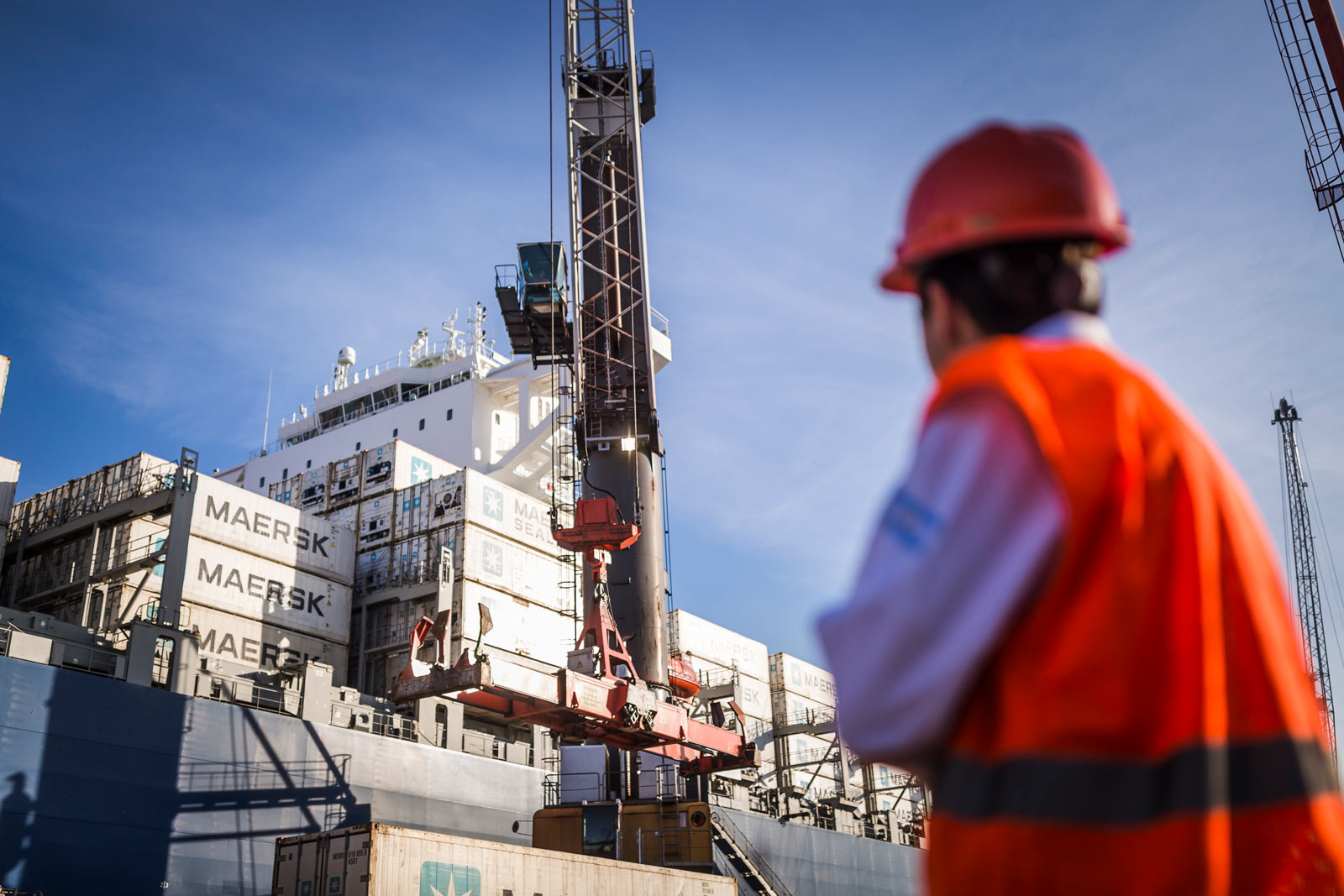
12/13/2023
Safety incident at APM Terminals Buenos Aires results in improved crane reliability
Proactivity is perhaps the most important aspect of safety in the container terminals and logistics business. With combustible fuel, large-scale machinery, vessel calls, and complex, constant manoeuvres, the threat of an unexpected incident is ever present. Avoidance is crucial, and vigilance is a constant.
 If an incident does occur, formalized steps are taken to forensically distil information, amend, and share learnings across terminals to reduce risk. Such was the case APM Terminals Buenos Aires, Argentina which suffered two fires in the first quarter of 2021.
If an incident does occur, formalized steps are taken to forensically distil information, amend, and share learnings across terminals to reduce risk. Such was the case APM Terminals Buenos Aires, Argentina which suffered two fires in the first quarter of 2021.
“We had two fire incidents in our Mobile Harbour Cranes (MHCs), which is utterly unacceptable to us. We were shaken,” says Silvia Iglesias Managing Director, APM Terminals Buenos Aires. “Our aim is to have zero incidents. Safety is our number one priority. We needed to double-down to avoid such a thing happening again.”
Failing safely
Talking openly about near-misses and accidents can be difficult on a personal level, but Buenos Aires’ safety lead, Juan Pablo Lloret, speaks plainly: “We failed. But we failed in the safest way,” he says. “From the start of the fire until our colleagues were rescued, four minutes passed. The two operators suffered no injuries and escalation of the fire was prevented.” But that didn’t stop the incident taking a toll on the entire terminal, and bringing safety very firmly to the fore, where it has remained ever since.
After the incident, a huge amount of work was done with the Maintenance and Supplier Management teams, with over 220 Gemba´s performed between July-October of this year alone. Gemba – a Japanese business term meaning to ‘get to the root of the matter’ or to investigate where work is carried out – focused on equipment conditions, the installation of firefighting systems, and specialised equipment.
Continuous Gemba learnings
“Even thought things are working great now, we perform drills,” says Lloret. The terminal recently took part in a Global Kaizen ‘Rescue from an MHC on fire’, conducted by Carlos Texeira, APM Terminals’ America region Safety lead. “We continue with Gembas, trainings, and drills to stay ahead of any potential incidents and safeguard the lives of our colleagues,” says Lloret.
Praising the actions of her safety team, Iglesias says firmly: “We do not want a ‘blame’ culture. We want everyone to be able to speak up. It’s only then that we can truly address issues.”
Speak Up!
Iglesias and her team have confidence in the APM Terminals group safety focus, a feature of which is the annual Global Safety Day, which this year took the theme ‘Speak Up!’. The purpose of Speak Up! was not only to encourage colleagues to bring issues or new ideas into the open, but to feel comfortable, safe, heard and supported in taking initiative.
According to Iglesias, APM Terminals Buenos Aires now has an even stronger Asset Management organisation within the terminal with a dedicated Planning Team and skilled supervisors. “We invested in training programmes to elevate the level of professional work, ensuring that our teams are equipped with the skills and knowledge they need to adhere to best practices, a crucial step to becoming the most value creating terminal company for all stakeholders.
Impressive results
APM Terminals Buenos Aires now reaps impressive results. In terms of asset operational availability, some MHCs have logged more than 36,000 operational hours each with an impressive average up-time rate of 98.4%. “This accomplishment has been pivotal in supporting the growth of terminal services and enhancing overall productivity,” says Iglesias.
She cites the APM Terminals Structural Integrity Management System (SIMS) programme for providing clear insights into asset conditions.
Single-source on safety
As part of APM Terminals maintenance procedures, Crane & Engineering Services (CES) is the only supplier used for structural integrity inspections, ensuring the highest standards – as a global requirement. By using CES – a sister company to APM Terminals – accumulated knowledge and specific experience is leveraged across locations.
“There is always the possibility that using local suppliers or contractors would bring potential cost savings, yes. But that would not justify an increased risk,” she says.
Now, with six completions on MHCs, three structural repairs in planning and two midlife overhauls in process, the terminal looks forward to lifting the standard of reliability further.
“We've set a clear course to ensure the performance for our MHCs and other critical assets,” says Iglesias. “The ongoing adoption of our asset management strategy and our safety priorities are the foundations on which we build our success,” she asserts.
APM Terminals Dashboard Login
Creating an APMTerminals.com account allows you to:
- Subscribe to our Global or Terminal Newsletters
- Set up Terminal Alerts (SMS or Email)
- Save import containers to your Container Watchlist and set up container Email Notifications
- Use our integrated Truck Appointment System - limited terminals
- Request additional services online - limited terminals